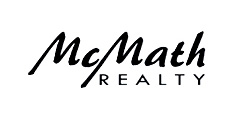In part one of this series, we discussed the fact that renting out your home is an increasingly popular option for families who are interested in purchasing a new residence.
Many people have discovered that they were better off to retain ownership of their home and rent it out than they were to sell it outright.
However, there are responsibilities that come along with choosing to rent out your home. If you go this route, you need to be prepared. Check out our home rental survival tips to guide you.
Decide How Much Rent You Can Charge
Many homeowners who are renting out their home so that they can buy a new home want to set the rent based on their current mortgage payment. It is tempting to take your mortgage payment, add in some extra rent to cover expenses, and charge that as rent.
However, the local real estate market may not support it. Talk to other landlords, check out the classified ads, and visit open houses to see what the going rental rates are for comparable properties. You could also talk to a local real estate agent for advice.
The rent that you can reasonably charge may be lower or equal to your mortgage payment. In order to find a tenant, though, your rental rate must be comparable to the other options in your area.
Always Use a Lease
You should always, always, always use a lease. If you are renting your home to a stranger, use a lease. If you are renting your home to your sister, use a lease.
If you are renting your home to your sister’s best friend, use a lease. Regardless of how well you know (or think you know) the renter, you should always have a signed lease before you allow anyone to move into your home.
Talk to an attorney to help you develop a lease that complies with local laws and is specific to the circumstances of your property. A good lease protects both you and your renter.
Your lease should include the following:
1. Term of the lease
You could use an annual lease, biannual lease, or even month-to-month. If you intend to rent only until you can sell your house, a month-to-month lease may be your best option.
2. Security deposit
The security deposit is usually equal to at least one month’s rent. If the prospective tenant cannot come up with the entire security deposit at once or asks to make payments toward the security deposit, do not rent to them. This is a major red flag.
3. Rent due date
The lease should clearly outline when the rent is due each month. It should also indicate what fees will be charged if the rent is late.
4. List of tenants
Your lease should include the names of every person who will be living in the property. Tenants should be required to notify you if one of those people moves out or if another party wants to move in.
5. Rules about pets
Your lease must state whether pets are allowed and what type of pets are allowed. It should also identify any extra deposits that are required for pets.
6. HOA rules
If your home is part of an HOA, your lease should spell out those rules and make it clear that the tenant is expected to abide by them.
If you own a home that you are considering using as a rental property, Get in touch with McMath Realty.
We offer a variety of services to assist you in maintaining your property, including investment consulting,property management,rental management,property inspections, and home maintenance services.
We manage rental properties in Chandler, Mesa, Gilbert, Scottsdale, Phoenix, Glendale, and all areas of Maricopa County.
We advertise your property in the MLS listing, on multiple websites, and on our own website. We also use signage to attract potential renters who are out driving around and looking for rental opportunities. We will assess your property, recommend improvements, and help you price your unit appropriately.
Contact McMath Realty at https://mcmathrealty.com//contact.php to learn more about how we can help you keep your rental property in great shape and take care of the day-to-day dealings with tenants!
